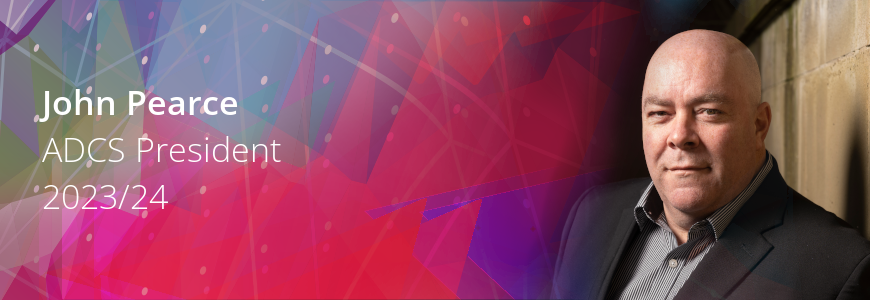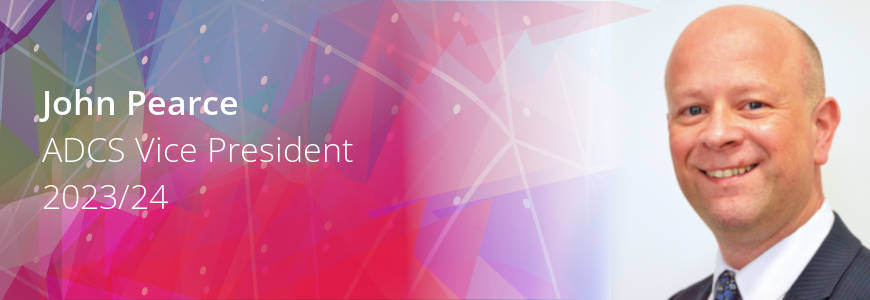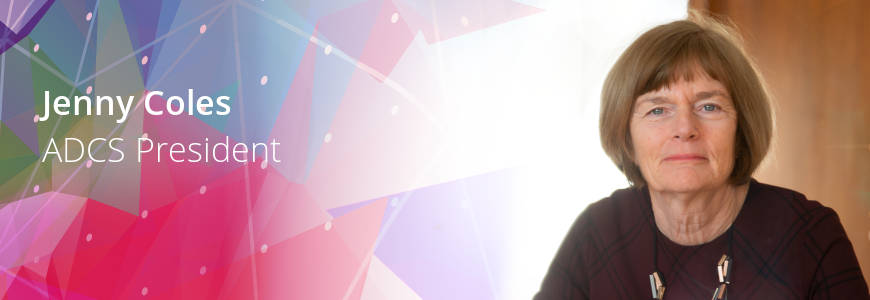Charlotte Ramsden Inaugural Presidential Address - press release

Today, Thursday 22 April, Association of Directors of Children’s Services, published the written inaugural address of its new President for 2021/22, Charlotte Ramsden, Strategic Director for People, Salford City Council.
Charlotte Ramsden used her address to outline the Association’s policy priorities for the coming year. She began by looking at the “known unknowns” that will emerge over the forthcoming year. “We know there will be long-term impacts, good and bad, experienced by children, young people and their families.” These children and families will need “long-term sustainable support” which is delivered locally and addresses the entrenched social and cultural problems as well as the immediate impact of the pandemic. “What is unknown is the degree of severity and the legacy of those impacts.”
She then turned to the need for maintaining and strengthening partnerships. We have seen the huge value of local partnerships in our response to Covid-19 and Charlotte highlighted the importance of these as we navigate through recovery. “Partnerships are in our DNA… with strong partnerships we can be greater than the sum of our parts. Never has that been more evident than over the last 12 months.” She went on to praise the work of local government which has “shown astonishing flexibility and resilience within all of our services.” This has been particularly evident with schools where “LAs have vital co-ordination, support and challenge roles. In many ways schools and councils have never been closer than we are now as together we’ve worked to keep children in our sight, maximise school attendance, ensure children learning remotely are fed and supported.”
The forthcoming year will present real opportunities to improve support for children and families to achieve the best possible future. “But children are not just our future, they are our NOW” she said. She continued “if collectively we don’t get things right now, in the care review, in the SEND review… then they won’t have the future they deserve.” To achieve this, we must have a “Long-Term National Plan for Children and Young People” just as the NHS has a Long-Term Plan. This needs to be “ambitious and predicated upon a universal approach to enabling all children to achieve their potential” she said, “whilst retaining a focus on the poorest and the most vulnerable.”
On the Care Review
“ADCS wishes to amplify our influence in order to maximize the impact of the Children’s Social Care Review if it is to be the ‘once in a generation’ opportunity to build on the successes and improve the weaknesses in the social care system in order to improve outcomes for children. Crucially we need better residential care, with placements that meet children’s actual needs. We can achieve this though better commissioning, child-centred practice and regulation that works.”
On children living in poverty
“When I first came to Manchester a very long time ago to study geography at University, I saw for the first time real inner city poverty and I was enraged at the injustice of it, particularly the way it blighted children’s life chances. The burning desire to do something about it changed my career trajectory away from becoming a geography teacher … to training to become a social worker. Now, so many years later, Manchester and Salford are beacons of regeneration. But, poverty is once again, rife, not just here up north, but everywhere. We must shine a light on inequality and do all we can to prevent child poverty becoming an epidemic wrapped up in a pandemic.”
On sexual harassment and sexual violence in schools
“The importance of a universalist approach has been highlighted by the recent and extremely distressing anonymous testimonials posted by women and girls on the website ‘Everybody’s Invited…’ Schools cannot fix all of society’s ills and it is certainly true that there’s a casual acceptance of degrading and over-sexualised representation of women and girls in our society. This has fermented a culture of misogyny which requires profound socio-cultural change if we are to protect girls without at the same time criminalising a generation of boys.”
On joined-up partnership working both nationally and locally
“Central government departments must work together to influence the Treasury…One way of doing this would be a commitment from the nine different central government departments each of which has some responsibility for some aspect of children’s policy, to… join up their thinking and most importantly pool their financial resources. Please stop the waste of time and money that results from dangling disparate, small, time-limited pots of funding to tackle complex, multi-dimensional and entrenched social and cultural problems.”
She went onto say, “one of my policy priorities for the year ahead will be to advocate for the development of a more effective interface – nationally, regionally and locally - with providers of adult health and social care services in the creation of more and seamless 0-25 services for those who need them… together I think we can make sure that the physical, mental and emotional health needs of children and young people are prioritised in ICS developments… The emerging operating model for ICSs… appears to have forgotten children… How can this White Paper have even been conceived of, never mind written in a child-blind way? … As your President I will seek ever closer partnership with health colleagues to meet children’s needs better and together with our friends and colleagues in ADASS and the LGA.”
The full written address can be found on the ADCS website.
ENDS
Related Articles
The greatest opportunities to make a real and tangible difference to a child’s...
In General
ADCS President, Alison Michalska, comments on a recent duty placed on local...
In General
Commenting on a report by the OCC into vulnerable babies in England
In General
Jenny Coles comments on UASC and ADCS age assessment guidance
In General
John Pearce comments on the need for a register of children being educated at...
In General
Government consultation on changes to the National Transfer Scheme
In General
At some point over the next 12 months, we’ll find ourselves heading into a...
In General
Gail Tolley responds to the announcement on 2021 school exam dates
In General
During the first few months of the pandemic all of us managed to adapt and...
In General
Comment on local authority statutory duties in relation to children




